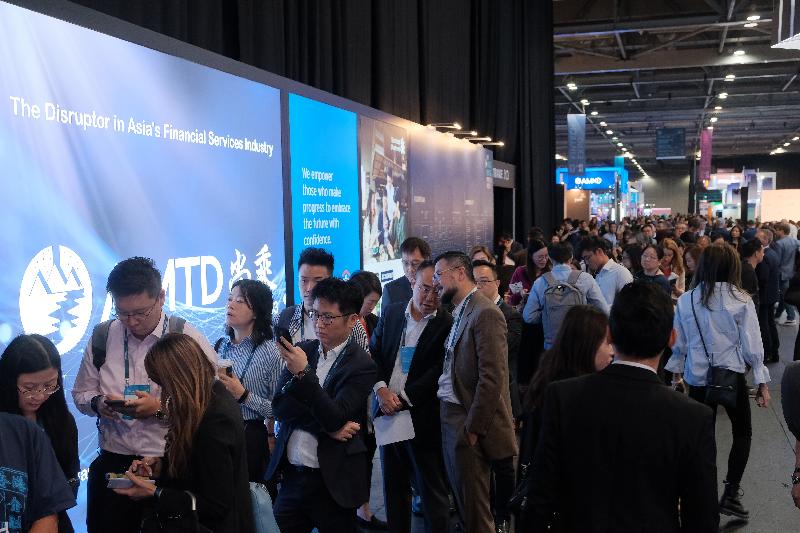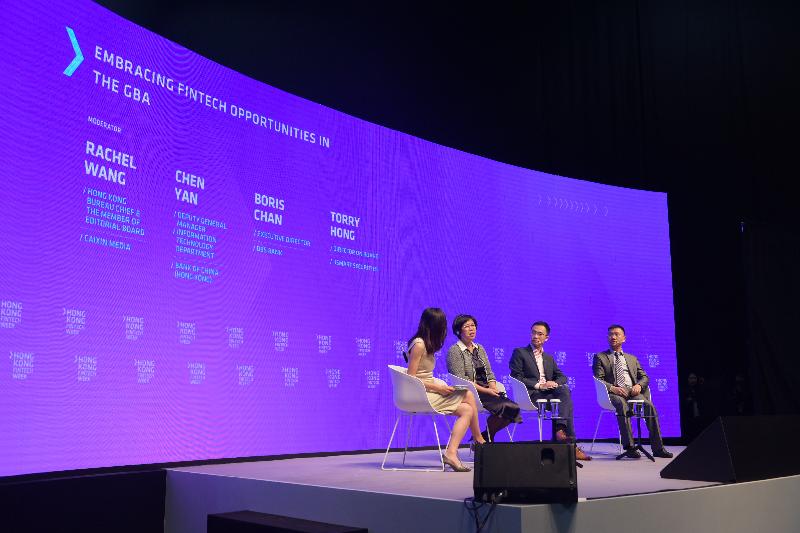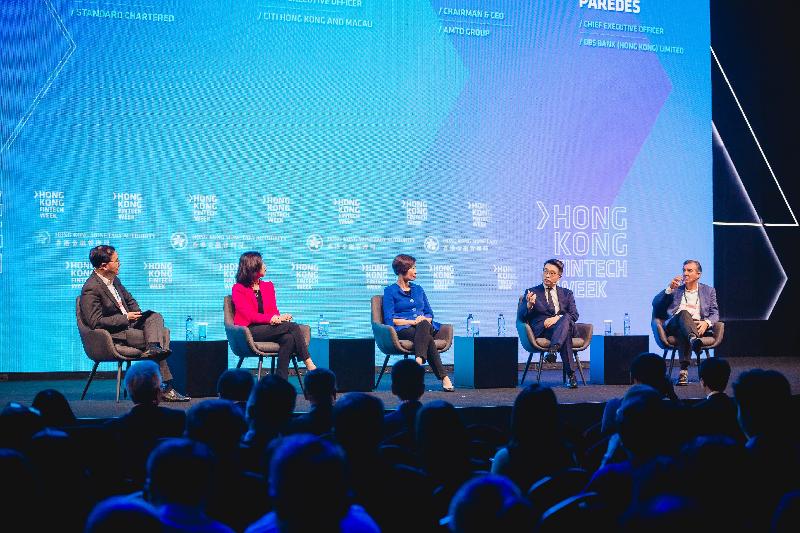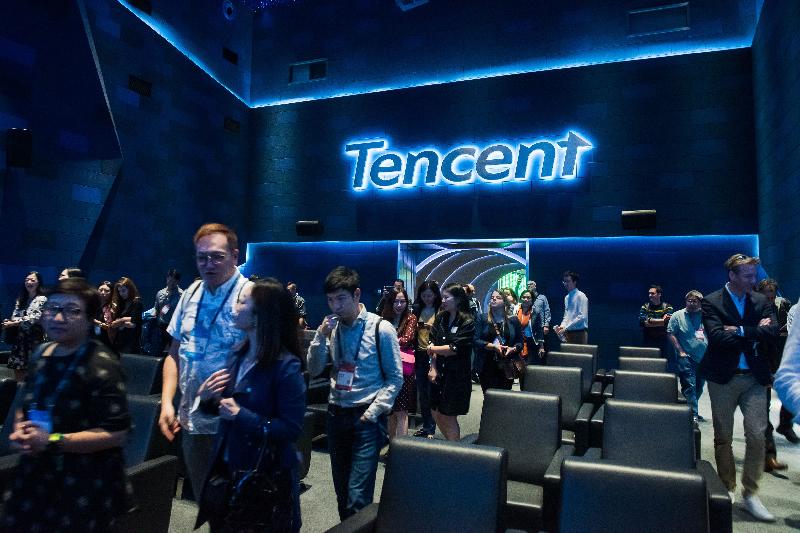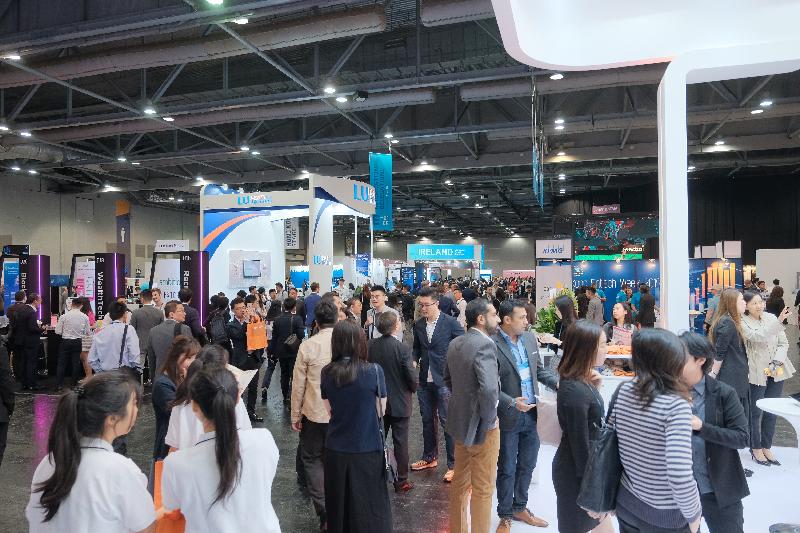Hong Kong Fintech Week spotlights digital asset regulation, virtual banking, future technologies and FintechHK Global Competition final (with photos)
******************************************************************************************
Presented by Invest Hong Kong (InvestHK), Fintech Week drew more than 12,000 attendees from over 60 economies, more than 250 world-class speakers and over 150 exhibitors and start-ups, and featured thousands of business meetings. The global nature of the event was clearly evident throughout, with 10 unicorns from around the world, plus 18 trade delegations - from Mainland China, the UK, Ireland, Switzerland, Israel, New Zealand, Luxembourg, the Nordic countries, Russia, Japan, Mexico, Austria, Canada, Sweden, France, Nepal, Bangladesh and Cambodia.
Delegates had the opportunity to take a deep dive into virtual banking, blockchain, future technologies, insurtech, payments and remittances, lending and credit scoring, and wealthtech and investtech. In addition, the specially arranged Deal Floor allowed for hundreds of curated business matching meetings, connecting users and solution providers. On Day 5, delegates visited Shenzhen to learn more about the development of fintech in the Mainland as well as the tremendous potential of the Greater Bay Area and Hong Kong's roles in it.
Opening the event, the Financial Secretary, Mr Paul Chan, spoke about the role of the Government in supporting the development of fintech and business in Hong Kong, while reflecting on the fintech achievements of the past year and the significance of the Greater Bay Area.
Mr Chan referenced InvestHK's 2019 Hong Kong Fintech Study, which showed that the number of fintech companies based in Hong Kong now exceeds 600. "Many of them see Hong Kong as their business bridge to the region and, in particular, to the Mainland. Indeed, more than 50 per cent of our fintech companies are either operated in the Guangdong-Hong Kong-Macao Greater Bay Area or plan to expand their business into the region," he said.
The growth of fintech in Hong Kong is part of the Government's strategy, Mr Chan emphasised, that despite the economic challenges Hong Kong faces, the development of the city's technology sector, including fintech, will continue to be a government priority.
The Chief Executive of the Hong Kong Monetary Authority (HKMA), Mr Eddie Yue, pointed out the achievements made in three short years together with the growth of the Fintech Week - the launch of the Faster Payment System (FPS), the granting of eight virtual bank licences, the adoption of the open API framework by the banks and the creation of a blockchain-based trade finance platform. Taking FPS registrations as example, there are over 3.6 million registrations. Transaction volume has been growing by nearly 10 per cent per month, and last month there was an average of more than 140,000 transactions per day.
He also announced the signing of a Memorandum of Understanding for blockchain collaboration between the subsidiaries of Hong Kong Interbank Clearing Limited and the Institute of Digital Currency of the People's Bank of China (PBoC) to conduct a Proof-of-Concept (PoC) trial, which aims to connect eTradeConnect and the PBoC Trade Finance Platform. The PoC trial is expected to begin in the first quarter of 2020.
Elsewhere, the HKMA announced that the Bank of International Settlements Innovation Hub Hong Kong Centre commenced operations this month.
The Chief Executive Officer of Hong Kong's Securities and Futures Commission (SFC), Mr Ashley Alder, focused on digital assets. The SFC announced new rules to allow virtual asset trading platforms to receive operating licenses, the objective being to improve regulation and overall standards in order to help prevent fraud. The rules stipulate that to get a license, trading platforms can only serve professional investors, and require insurance to protect clients in case assets are lost or stolen.
The new regulatory framework is a major development, Mr Alder said. "It draws heavily on the standards which we expect of conventional securities brokers and automated trading systems. But it also adapts those standards to deal specifically with the technology on which the industry is based," he said.
The Chief Executive of the Hong Kong Exchanges and Clearing Limited, Mr Charles Li, laid out his ambition for the exchange to become the global pioneer in trading data flows. "In the future, data can trade as a new asset class," he said.
The Chief Executive Officer of the Insurance Authority, Mr Clement Cheung, said that while Hong Kong ranks second globally in terms of the density of providers and penetration of coverage, deeper structural issues exist. He said that insurtech offers the key to healthy development of the city's insurance landscape, improving coverage and product balance, financial inclusion and, ultimately, social harmony.
A focal point and highlight for the week was the final of the FintechHK Global Competition, co-organised by InvestHK and Alibaba Entrepreneurs Fund, the culmination of an event that straddled three continents during the course of the year. The winner, sync., will benefit from an investment commitment of up to US$500,000.
The Secretary for Innovation and Technology, Mr Nicholas W Yang, emphasised the strategic importance of fintech in government planning. "Over the past two-plus years, we have allocated more than HK$100 billion to support the local I&T development, focusing on four thematic technology areas which include fintech," he said. "In just three years, Cyberport has grown into a fintech cluster with some 360 fintech start-ups and companies, making it the largest fintech community in Hong Kong and also one of the largest in Asia."
The Director-General of Investment Promotion at InvestHK, Mr Stephen Phillips, commented, "The Fintech Week this year is a testament to the commitment and drive of Hong Kong to be the leading fintech hub in the region. It also revealed the new opportunities ahead for Hong Kong, leveraging the city's proximity to Shenzhen and the rest of the Greater Bay Area."
Behind the scenes and away from the stages, meetings and deals were done, with more announcements made. For further highlights of the Hong Kong Fintech Week, go to www.fintechweek.hk;
About InvestHK
InvestHK is the Hong Kong Special Administrative Region Government department responsible for foreign direct investment. It has set up a dedicated fintech team in Hong Kong with correspondents located in London and San Francisco. It aims at attracting the world's top innovative fintech enterprises, start-up entrepreneurs, investors and other stakeholders to expand and scale their business via Hong Kong to the Mainland of China, Asia and beyond.
Ends/Tuesday, November 12, 2019
Issued at HKT 17:00
Issued at HKT 17:00
NNNN





